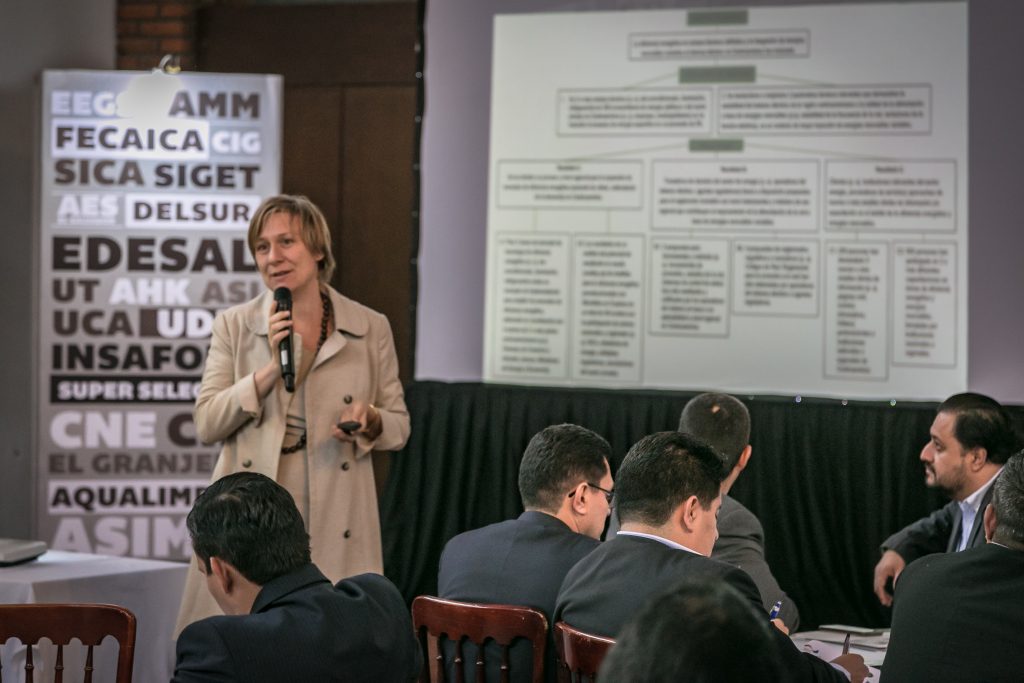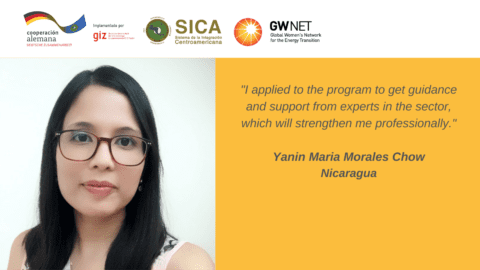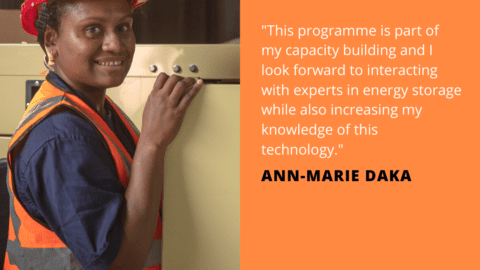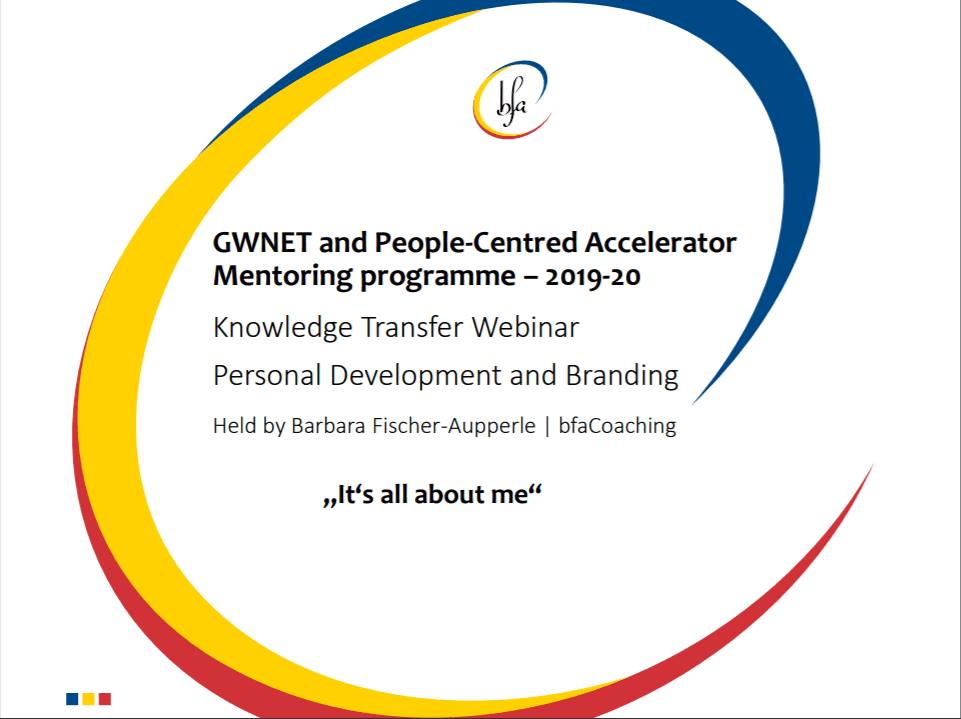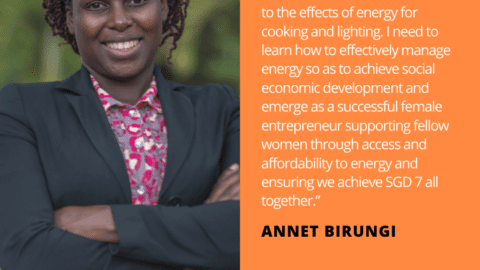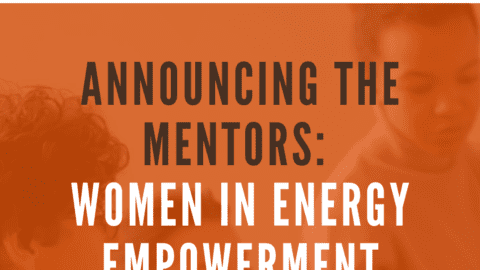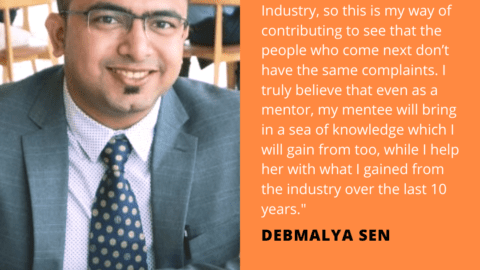GWNET brings you the 11th instalment of the “Meet the Women in the Energy Transition” series which celebrates the work and achievements of the women who are part of GWNET’s 2/2019 Mentoring Programme. This mentoring programme contains 22 mentee-mentor tandems, with mentees from over 15 countries. Meet GWNET mentor, Tanja Faller. Tanja has over 15 years of experience in project, early stage and development financing focusing on energy and infrastructure. She started her career as a Private Sector Specialist in the World Bank and continued as a Senior Energy Economist at the African Development Bank. Her experience includes geothermal investment in fragile contexts such as Djibouti, and blended finance structures such as Africa’s largest solar power plant in Morocco. Before joining GIZ in 2017, she worked as a Senior Investment Manager at MEAG, the asset management company of one of the world’s largest reinsurance companies, Munich RE, where she was responsible for growing the MEAGs infrastructure project finance activities across emerging markets. Tanja graduated with a Master degree in International Finance and International Development from Johns Hopkins University, School of Advanced International Studies (SAIS) Washington DC, and holds an M.A. in Regional Science from the University of Cologne, Germany. Tanja is a Young Leader of the American Council on Germany, an alumna of the German Academic Foundation and a member of the Tönissteiner Kreis. GenerationCEO, an initiative selecting female executives with the potential to enter the management board of major companies awarded her as a “Manager of the Year 2014.”
1) Tell us a little about yourself. What do you love most about what you do?
I work for the German Development Cooperation (GIZ GmBH) as the regional director, energy in Central America. I lead a team of successful managers that support – together with their teams – our partners in the Central American energy transition and foster the uptake of geothermal energy. I love that we are part of introducing cutting-edge innovations in the sector in Central America. I love that my team- out of which around 50% are female – is assisting in ensuring that the energy transition includes economic growth for marginalized groups, for instance through geothermal coffee drying in El Salvador, where rural women find work using the waste heat of geothermal power plants. This not only ensures acceptance of a renewable power plant through the creation of permanent local jobs but also a climb up the value chain for export, from raw material to agricultural products, thus sharing the economic benefits of geothermal energy. I love that our counterparts already have a higher share of renewable energy in the energy mix than my home country Germany and are yet striving to become even greener. I also love that digitalisation is considered a challenge worth taking due to the opportunities it can provide. I love leading my teams to innovation in sustainable energy and see them grow from professionals to senior professionals, from juniors to professionals and from managers to executives. And finally, I love making an impact on the sustainable energy space.
2) What were your goals when you started working in sustainable energy? Have these evolved?
I started working on energy and infrastructure at the African development bank when around 2/3 of Africa’s population did not have access to energy. Therefore, ensuring access and affordability was a primary concern for African countries and my goal was to support these countries in ensuring energy access for all. Energy access so that hospitals were no longer affected by blackouts and so that vaccines could be cooled to ensure children did not die of preventable diseases. Energy to allow children to study after nightfall and so that women in the village spent fewer hours collecting fuelwood. In short, energy to fight poverty. With the increasing importance of climate change– and with the rise of climate finance instruments – the conversation- and my goals- started shifting towards sustainable energy. In addition, the goal is no longer to provide only – clean- power to households but to contribute to a full sectoral transition, including transport and industrial uses. One goal, however, has remained the same all through my professional life: fighting poverty through sustainable infrastructure and ensuring equal and sustainable opportunities for all humans.

3) What are the opportunities for sustainable energy growth in your country?
As a global citizen, this question is hard to answer. In Germany, my native country, there are certainly enormous potentials in completing Germany’s energy transition and fazing out fossil fuels- notably carbon-based ones. There are simply no more economic reasons to continue fossil pathways. Secondly, new cross-sectional challenges – such as a sustainable transport transition and a heating transition will be guiding opportunities for my native country in the future. Combine all of this with the potential for digitalisation, that new, smart technology such as distributed ledger technologies offer and there is more than enough exciting work ahead! For most developing countries, however, the same global tendencies (cross-sectoral melting and digitalisation) will create a need for Energy for Growth as we are working on it at the Energy for Growth Hub : while we are thankfully moving towards an energy access for all, awareness that a solar panel on the roof may not be enough to boost economic growth. It is a beginning, but access to energy – and thus the SDG 7 must go beyond lighting alone. Energy access refers to the question of whether or not a person is connected to some minimal supply of electricity at home. Access to energy in this sense is important, of course, not sufficient as it has little impact on individual economic mobility. At least two billion people have energy access (e.g., enough power for lights at home), but still live in countries without energy for growth where shortages and unreliability harm their future. We are still far away from developing countries achieving the high-energy future they need to become prosperous and economically competitive — systems that power industrial and commercial development, sustainable transport systems, job creation, and economic growth. So, there will be plenty of opportunities in ensuring sufficient clean energy for economic prosperity for all.
4) What challenges have you faced in the sector? Can you tell us how you overcame (or are overcoming) these challenges?
Being women in the energy sector is both, an asset and a liability at the same time. It is a choice of how you frame it for yourself. It is certainly true that – often unconscious – biases persist. Particularly in some vulnerable phases of our life’s (i.e. pregnancy), one could be looked at as less capable or interested. However, more often nowadays there is a strong will to promote women in the sector. Female networks – such as GWNET and GenCEO create the structures women only one or two generations ago were missing and pathways for young ambitious women. It is up to us to encourage ourselves and the women in our professional surroundings to throw their hats in and fully participate in the game. However, we also must be honest and be ready to play, fully and be “up for the job”. Being female should never be an excuse. For instances, I am a mother of five small children, yet I have – so far – not missed a day of work because of a child’s flu. You create your support systems from and with your partners, family, friends and – very important! – people you hire to help you. Frankly, today, we spent a very good deal of our salaries on skilled and trained household help, cleaners, drivers, extra babysitters nannies and other help – and it is the best investment I can think of as it allows me to focus on those parts of being a mother I would never want to miss, while at the same time creating the context for being a successful executive in the energy sector. So I strive to be the best role model for my kids that I can be.
5) Why did you join the GWNET Mentorship Programme? What do you hope to achieve?
Throughout my career, I have been blessed to have excellent mentors – both, male and female that have helped me identify where I can contribute to the most. Participating in the GWNET mentorship programme is thus giving back. However, I am deeply inspired by my mentee and the other women who are participating, which shows how mutually beneficial mentoring relationships are. I can also see their positive impact on the performance of my staff members who participate, so also as an employer whose staff is participating as mentees, I am fully impressed and feel blessed to be part of the programme.
6) What advice would you give to women hoping to join the sustainable energy sector?
Be good. Know your stuff. Do your homework. Be excellent in what you do. Look for areas where you can leave a mark. And, do not be too shy to shine.

If you are interested in knowing more about GWNET’s mentoring programmes, this comprehensive article outlines our work in this area.
Become a mentor – what’s in it for you?
GWNET is looking for senior professionals who are eager to make a difference and have a positive impact on a younger woman’s career in the energy sector. With the ever-changing dynamics of the business fields, digitalisation, knowledge and knowledge sharing has become more important than ever. As a mentor, you get the opportunity to give something valuable back to more junior professionals and to expand your own knowledge through your mentees’ perspective. Mentoring will contribute to personal and professional development for both you and your mentee, as well as, shaping the direction of future generations within your field of expertise.
If you are interested in volunteering as a mentor in one of GWNET’s mentoring programmes (which involves approx. 1 – 1.5 hours of engagement per month plus optional participation in knowledge-transfer webinars), kindly fill-in the Mentor Datasheet.


